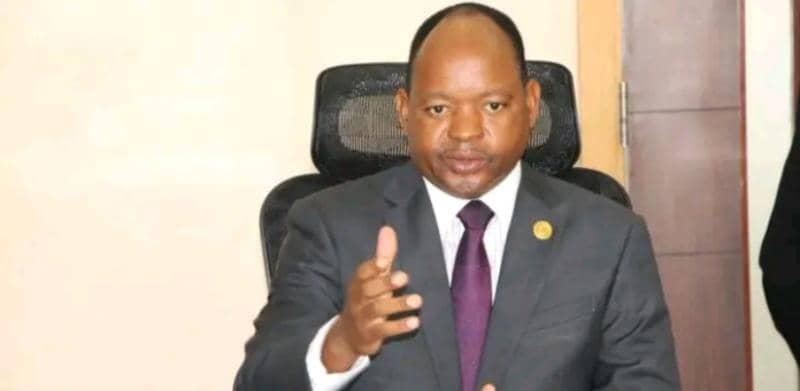By Burnett Munthali
UPND spokesperson Mweetwa has asserted that what transpired in Malawi during recent political events cannot happen in Zambia next year.
He emphasized that the United Party for National Development (UPND) has taken proactive steps to ensure electoral integrity and public confidence ahead of the upcoming elections.
Mweetwa highlighted that the party has strengthened its organizational structures, deployed observer networks, and engaged with citizens to raise awareness about their voting rights.
He argued that lessons from Malawi’s political challenges offer a clear roadmap for safeguarding democratic processes in Zambia.
The UPND leadership is determined to prevent issues such as vote manipulation, delayed results, and post-election tensions that were observed in Malawi.
Mweetwa also called on the Electoral Commission and other stakeholders to collaborate fully with political parties to guarantee transparency and fairness.
According to him, Zambians must be assured that their voices will be heard and that the outcome of elections will reflect the genuine will of the people.
The statement is part of the UPND’s broader strategy to boost public confidence and position the party as a credible guardian of democracy.
Political analysts note that emphasizing lessons from neighboring countries can serve as both a warning to competitors and reassurance to supporters.
Mweetwa concluded that with the systems and safeguards the UPND has put in place, Zambia is better prepared than ever to conduct peaceful and credible elections next year.
Political Analysis: UPND Strategy and Voter Perceptions
The UPND’s approach signals a highly organized and proactive campaign strategy designed to build trust among voters who may fear electoral irregularities.
By drawing comparisons to Malawi, the party contextualizes the risks of electoral mismanagement and positions itself as a protector of democratic principles.
This strategy is likely to resonate with urban and educated voters who are highly aware of regional political developments and value transparency in governance.
At the same time, the deployment of observer networks and grassroots awareness campaigns can reassure rural electorates that their votes will count, mitigating apathy or disengagement.
Political analysts argue that UPND’s emphasis on electoral preparedness could strengthen its credibility while putting pressure on opposition parties to commit to transparent and fair processes.
The framing of Malawi as a cautionary example may also influence voter psychology by creating a sense of urgency for citizens to safeguard their democratic rights through active participation.
In addition, highlighting concrete measures—such as election monitoring, civic education, and stakeholder engagement—demonstrates to voters that UPND is translating rhetoric into tangible action.
This approach could help the party consolidate its existing support base while attracting undecided voters who prioritize stability, fairness, and institutional integrity.
Observers suggest that the party’s messaging may also shape public expectations, raising the bar for electoral authorities and competitors alike to adhere to high standards of transparency.
Ultimately, if the UPND successfully executes its strategy and visibly prevents electoral issues, it may not only secure victory but also reinforce its image as a modern, responsible, and accountable political force in Zambia.
Voter Demographics: How Youth, Rural, and Urban Populations Might Respond
The youth vote in Zambia is expected to be particularly receptive to UPND’s message, as younger citizens tend to prioritize fairness, transparency, and protection of their democratic rights.
By emphasizing lessons from Malawi, the UPND can appeal to young voters’ sense of civic responsibility and desire to prevent political mismanagement in their own country.
Rural electorates, who often face logistical barriers to voting and limited access to information, may respond positively to the party’s deployment of observer networks and grassroots awareness campaigns.
These measures reassure rural voters that their participation is meaningful and that mechanisms are in place to safeguard their votes from manipulation or irregularities.
Urban voters, particularly the educated and economically active, are likely to focus on UPND’s framing of governance, transparency, and institutional accountability.
Highlighting concrete election safeguards and proactive engagement may reinforce the party’s credibility among urban populations who are more critical of political rhetoric without evidence of practical measures.
Political analysts suggest that a successful combination of rural outreach and urban engagement could broaden UPND’s appeal, allowing it to consolidate core supporters while attracting undecided voters across diverse constituencies.
Moreover, presenting Malawi as a cautionary tale may have a psychological effect across all demographics, encouraging higher voter turnout and active participation in the electoral process.
In essence, UPND’s strategy, when tailored to demographic realities, has the potential to maximize voter confidence, reduce apathy, and create a competitive advantage ahead of Zambia’s next elections.




